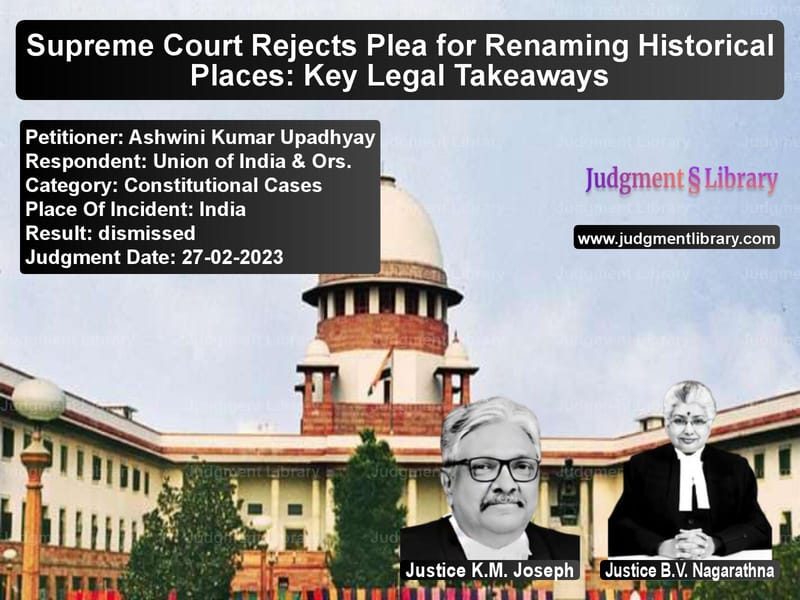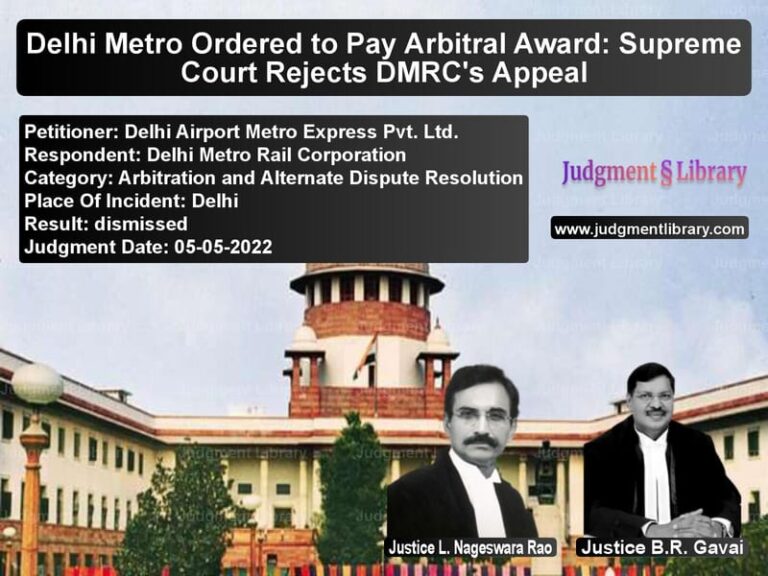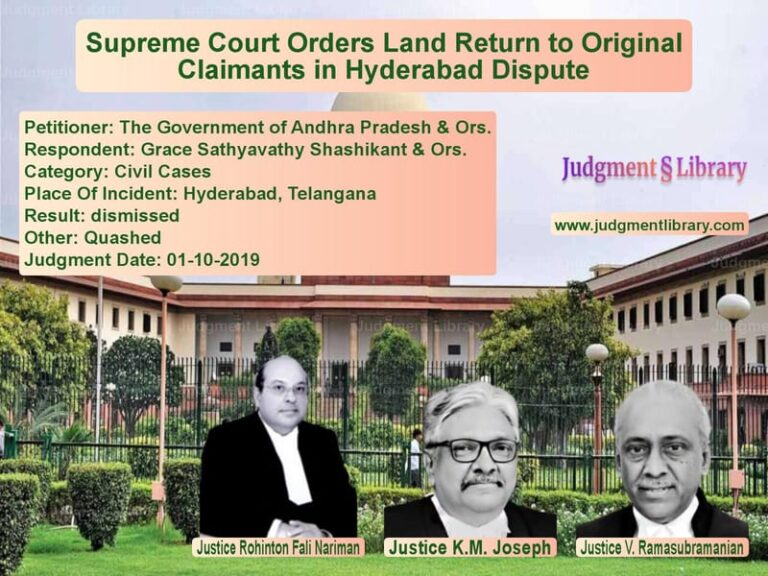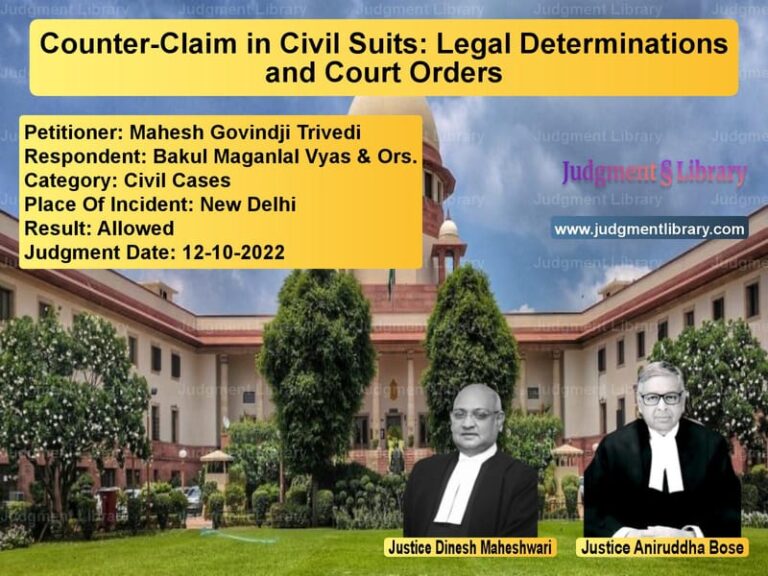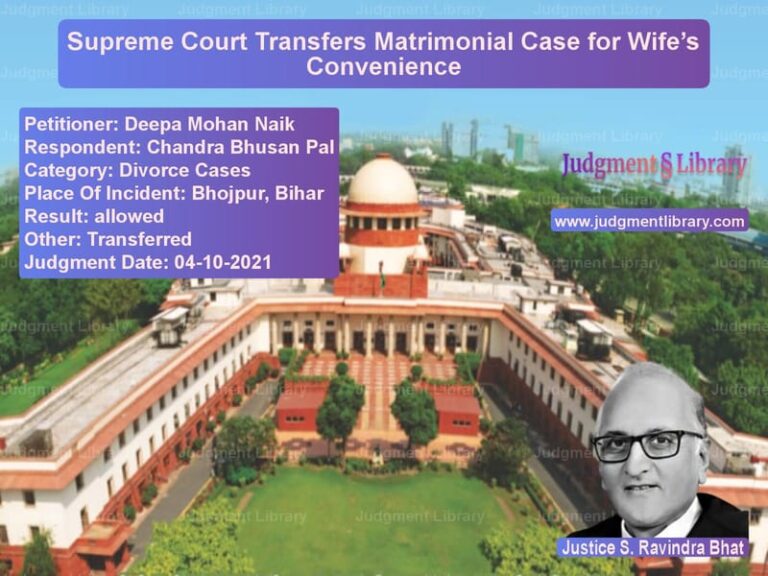Supreme Court Rejects Plea for Renaming Historical Places: Key Legal Takeaways
The Supreme Court of India recently ruled on the case of Ashwini Kumar Upadhyay vs. Union of India & Ors., addressing a plea seeking the renaming of historical, cultural, and religious places named after past foreign rulers and invaders. The petitioner sought to establish a ‘Renaming Commission’ under the Home Ministry to restore original names, citing constitutional rights and national sovereignty. However, the Court dismissed the plea, stating that governance cannot be dictated by the past and that secularism is a fundamental pillar of India’s Constitution.
Background of the Case
The petitioner, Ashwini Kumar Upadhyay, argued that the continued use of names attributed to past foreign rulers and invaders compromised India’s sovereignty and violated fundamental rights. The petition sought three key directives:
Read also: https://judgmentlibrary.com/judicial-review-in-high-court-judge-appointments-supreme-courts-verdict/
- The establishment of a ‘Renaming Commission’ to identify and restore original names of ancient sites.
- An order directing the Archaeological Survey of India (ASI) to research and publish the original names of these sites.
- A directive to the Central and State governments to update official records with these original names.
Petitioners’ Arguments
- The petitioner argued that the continued usage of names given by foreign rulers was an insult to India’s cultural heritage.
- He claimed that this violated Articles 21 (Right to Dignity), 25 (Right to Religion), and 29 (Right to Culture) of the Constitution.
- The plea also invoked the Right to Know under Article 19(1)(a), arguing that citizens had a fundamental right to be aware of the original names of historical places.
- He further argued that renaming these places was necessary to preserve India’s sovereignty and cultural identity.
Respondents’ Arguments
- The Union of India and State governments opposed the petition, stating that there was no legal or constitutional mandate requiring a mass renaming of places.
- They argued that India’s Constitution upholds secularism and does not favor or discriminate against any religious or historical narrative.
- The respondents contended that historical names are a part of India’s diverse cultural evolution and that changing them based on religious or political grounds would be inappropriate.
Key Observations by the Supreme Court
The Supreme Court provided several key observations in dismissing the plea:
- The Court emphasized that India is a secular country, and decisions about governance and public administration must align with constitutional values.
- It reaffirmed that secularism is a fundamental aspect of the Constitution, citing previous landmark cases such as Keshavananda Bharati v. State of Kerala and S.R. Bommai v. Union of India.
- The justices stated that history cannot dictate the present or future, and renaming places based on past rulers’ identities could lead to communal disharmony.
- The Court held that the constitutional principles of equality, fraternity, and secularism must be upheld in public governance.
- The judgment emphasized that the government must focus on progressive governance rather than revisiting historical grievances.
Judgment
The Supreme Court dismissed the petition, ruling that:
- The plea did not raise an enforceable constitutional issue.
- The renaming of historical places is a matter of policy, best decided by the legislature and executive, not the judiciary.
- The concept of sovereignty, as argued by the petitioner, does not extend to renaming places based on historical grievances.
- The Court emphasized that governance should focus on unity and progress rather than revisiting historical conflicts.
Implications of the Judgment
The ruling sets an important precedent regarding renaming public places and constitutional governance:
- Secularism as a Constitutional Principle: The judgment reinforced that India is a secular nation, where governance decisions should not be driven by religious or historical sentiments.
- Limited Role of Judiciary in Policy Decisions: The ruling clarified that courts cannot interfere in policy matters that fall within the executive’s domain.
- Encouraging National Unity: The decision discourages actions that could create social divisions and emphasizes that national identity should be inclusive and forward-looking.
- Preventing Misuse of Public Interest Litigation: The Court reaffirmed that PILs should address tangible constitutional or legal issues rather than political or ideological demands.
Conclusion
The Supreme Court’s decision in this case is a landmark ruling that upholds the principles of secularism, governance, and constitutional integrity. By rejecting the plea to rename historical places based on past rulers’ identities, the Court has reinforced the importance of forward-thinking governance. The judgment serves as an important reminder that national unity is built through inclusivity and respect for all historical narratives, rather than selective historical revisions.
By reaffirming established legal precedents, the Court has provided clarity on the limits of judicial intervention in policy decisions. This ruling will likely serve as a guiding principle in future cases involving similar demands for historical revisionism.
Petitioner Name: Ashwini Kumar Upadhyay.Respondent Name: Union of India & Ors..Judgment By: Justice K.M. Joseph, Justice B.V. Nagarathna.Place Of Incident: India.Judgment Date: 27-02-2023.
Don’t miss out on the full details! Download the complete judgment in PDF format below and gain valuable insights instantly!
Download Judgment: ashwini-kumar-upadhy-vs-union-of-india-&-ors-supreme-court-of-india-judgment-dated-27-02-2023.pdf
Directly Download Judgment: Directly download this Judgment
See all petitions in Constitution Interpretation
See all petitions in Fundamental Rights
See all petitions in Legislative Powers
See all petitions in Public Interest Litigation
See all petitions in Separation of Powers
See all petitions in Judgment by K.M. Joseph
See all petitions in Judgment by B.V. Nagarathna
See all petitions in dismissed
See all petitions in supreme court of India judgments February 2023
See all petitions in 2023 judgments
See all posts in Constitutional Cases Category
See all allowed petitions in Constitutional Cases Category
See all Dismissed petitions in Constitutional Cases Category
See all partially allowed petitions in Constitutional Cases Category

